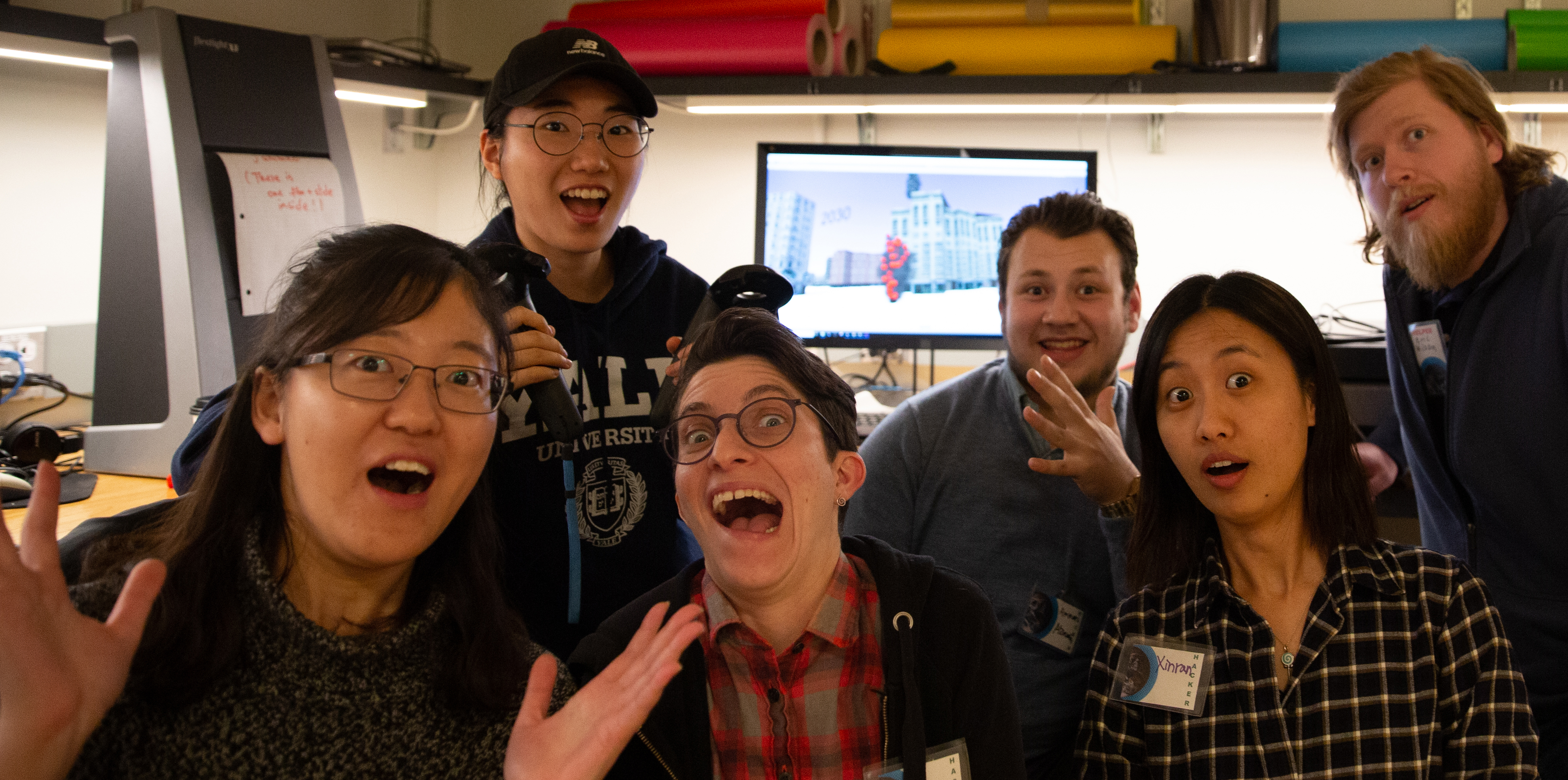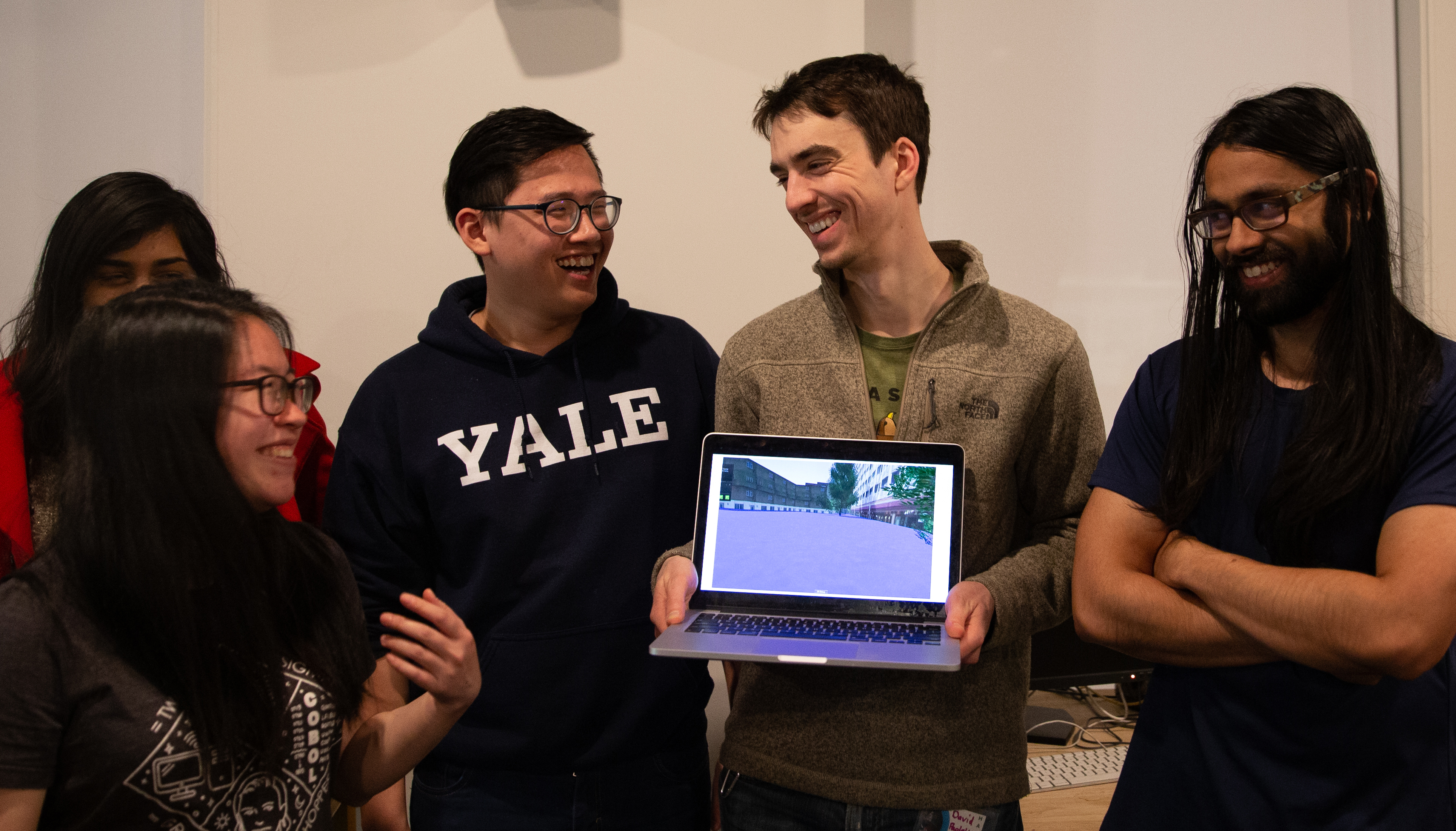About the Hackathon
One way to understand a problem is to look at it in a new way. Join your fellow students, along with climate scientists and technical mentors, for an intense day and a half to utilize virtual and augmented reality technologies to explore themes of global climate change.
Teams will create experiences on themes of global climate change using climate change data sets with virtual reality and augmented reality technologies. Climate change materials — datasets, photos, geo spatial data, etc. — will be provided by the Yale sponsors and external sponsors. Technical mentors and climate scientists will be in attendance to assist with the team work. Bring a team with you, or come alone and get matched up with others. No prior technical or programming experience required. Do come with a passion to learn, explore, and help communicate on the impacts of climate change.



Registration
Registration will start in early November 2019.